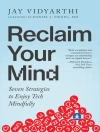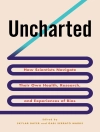What is morality? Do we have free will? Are there any limits to what the human mind can understand? How is it that humans speak? Why do we die? What is it that transcendental meditation transcends?
Reverse Engineering God proposes rational and science-based answers to these and many other related and similar questions. It does so in a series of short ‘stories.’ Each story presents one question, describes the scientific data available for its solution, shows how these data, when combined with logical inferences, can be used to answer the question, and points to its relation with other questions.
Contents:
- Acknowledgment
- Introduction
- Just So Stories:
- Soul, Mind, Will, and Self (Are) Matter
- A Brief History of Human Kindness: Empathy, Altruism, and Morality
- Being Human: Capabilities
- Being Human: Longing for Purpose
- The Selfplex Rules the World
- Evolution vis-à-vis Creation
- Other Minds
- How Come the Universe, Nature, and Life Exist?: All Beginnings are Difficult
- Concepts
- Not So Stories:
- Paradoxes
- Expansions
- Epilogue
Readership: The scientifically oriented atheist community, general public.
‘The famous saying ‘good things come in small packages’ is an accurate description of this really amazing book. It is rather short, and yet succeeds to provide illuminating discussions of no less than 40 central scientific/philosophical subjects and questions of the type that most human beings were wondering about at certain points in their lives.’ See full review – Prof. Arnon Avronformer chair, Computer Science Department, Tel Aviv University
‘Michael Rothschild’s Reverse Engineering God: Irreligious Answers to Fundamental Questions is a collection of very short, fascinating essays, which the author refers to as his own ‘just so stories.’ Their brevity in no way reflects the depth of thought that went into each one. The essays appear to be unconnected to one another, but the discerning reader will note a thread that, through razor-sharp reasoning, unifies them into one entity.’ See full review – Yoel Rak Professor, Department of Anatomy and Anthropology, Faculty of Medicine, Tel Aviv University and Member, Israel Academy of Sciences and Humanities
‘In this intriguing book, Michael Rothschild has created a series of ‘stories’, as he refers to them. Each ‘story’ is in reality a fundamental question that many people had often asked, in many different fashions, such as, ‘Is there indeed a free will?’ or ‘How did language develop?’ Many of these questions have one or more traditional answers, some of which have a distinctly religious aspect.’ See full review – Prof. Yuval Shahar, MD, Ph D, Facmi, Miahsi Ben Gurion University
‘This is an excellent book — an extremely worthwhile addition to the literature on the interface of philosophy, psychology, religion, and morality. It is well written and strikes an excellent balance between easy accessibility and nuanced and novel ideas. This book will appeal to readers who like novel and challenging ideas and students from a range of discipliness.’ – Professor Mario Mikulincer, Dean School of Psychology Interdisciplinary Center (IDC)Herzliya
Key Features:
- Original ideas, clearly presented and integrated in a consistent whole
- The book seeks to grant the three wishes expressed in the Serenity Prayer with respect to these questions. It offers scientific answers to many of these questions, and shows why some of these questions are indeed beyond the scope of human understanding
- Answering these requests and showing that science and reason still can, to some extent, deal with things that we don’t quite understand, the book enables us to reach the serenity we need to accept our inability to fully understand everything





